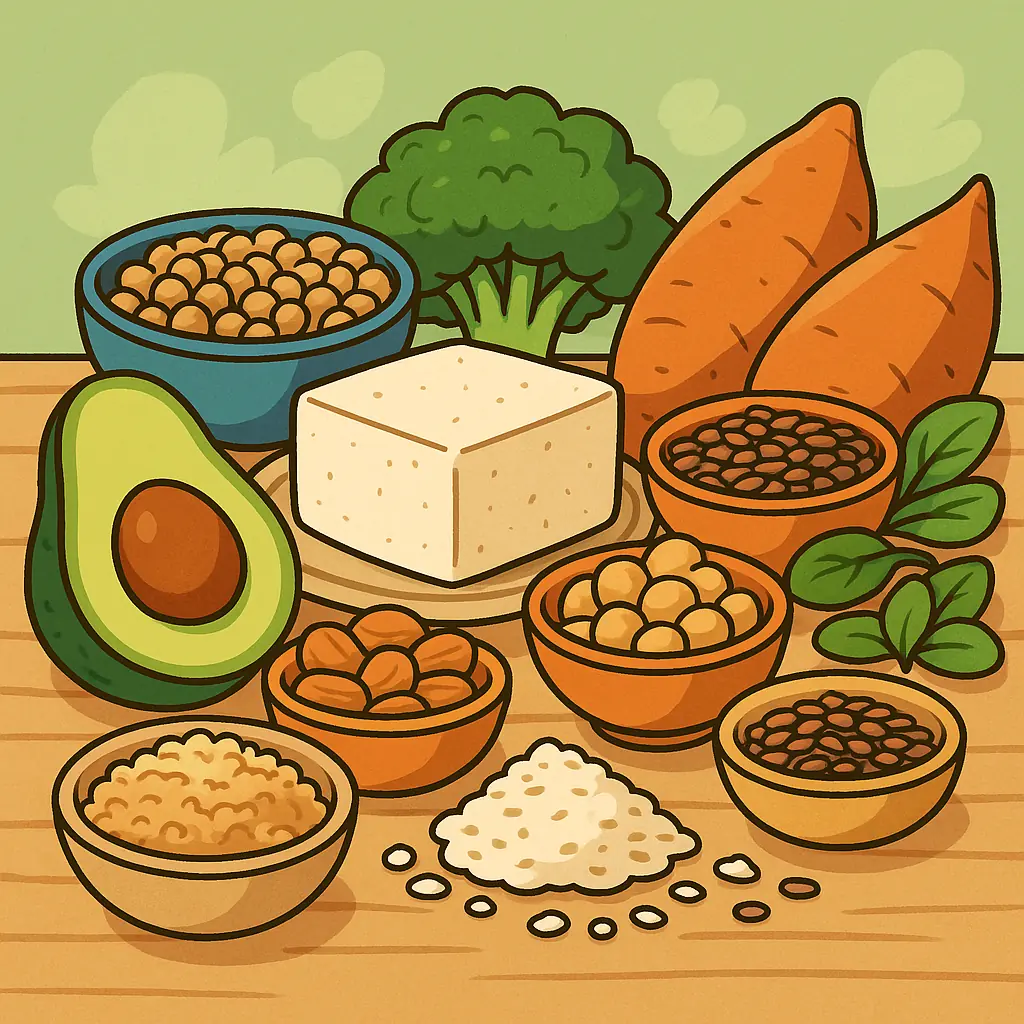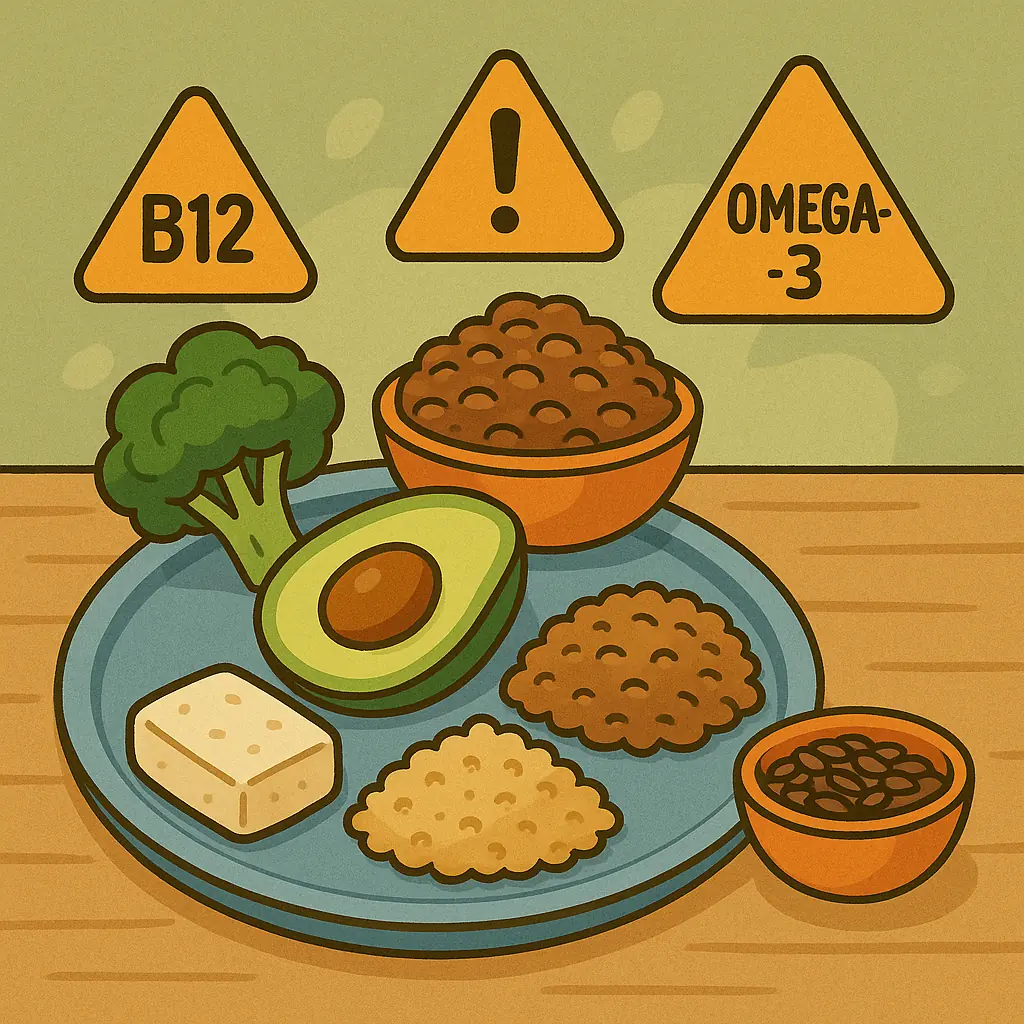Can Athletes Thrive on a Vegan Diet? Exploring Performance, Protein, and Recovery
Discover the potential of a vegan diet for athletes in enhancing performance and recovery. Learn about protein sources and the impact on athletic success.

The Rise of Vegan Athletes
In recent years, an increasing number of athletes have embraced vegan diets, driven by both ethical considerations and health benefits. Prominent figures like tennis champion Venus Williams and Formula 1 driver Lewis Hamilton have publicly shared their positive experiences with plant-based nutrition.
The shift towards veganism among athletes aligns with growing evidence that a well-planned vegan diet can meet the rigorous nutritional demands of professional sports. This trend is supported by studies indicating that plant-based diets might reduce inflammation and improve cardiovascular health, both critical for athletic performance (source).
In addition to health benefits, environmental concerns also motivate many athletes to choose veganism. The reduced carbon footprint and lower resource usage associated with plant-based diets are compelling reasons for athletes committed to sustainability.
Understanding Nutritional Needs for Athletes
The nutritional requirements for athletes are unique, and these must be carefully managed on a vegan diet. Protein, carbohydrates, fats, vitamins, and minerals are all essential for optimal athletic performance.
Protein, in particular, is a focal point for athletes seeking muscle repair and growth. Contrary to popular belief, there are numerous plant-based protein sources such as lentils, chickpeas, tofu, and quinoa that provide ample protein for athletes (source).
Carbohydrates are the primary energy source for athletes. Foods like brown rice, sweet potatoes, and oats offer complex carbohydrates that ensure sustained energy levels during training and competition.
Essential fats, vital for hormone production and cell membrane integrity, can be obtained from plant sources such as avocados, nuts, and flaxseeds. Omega-3 fatty acids, typically sourced from fish, can also be found in chia seeds and algae-based supplements.
Vitamins and minerals, including iron, calcium, and B12, are crucial for maintaining energy levels and bone health. Fortified foods and supplements can assist in meeting these needs on a vegan diet.

Protein Sources: Building Blocks for Performance
Protein is often the main concern for athletes considering a vegan diet, yet plants offer a diverse range of protein-rich options. Legumes, including beans and lentils, are excellent sources that also provide fiber and essential nutrients.
Soy products, such as tofu and tempeh, are not only rich in protein but also versatile in culinary applications. These foods can be incorporated into a variety of dishes to keep the diet exciting and nutritionally balanced (source).
Beyond whole foods, vegan protein powders derived from peas, rice, or hemp can help athletes meet their daily protein targets, especially post-workout when the body requires quick nutrient replenishment.
Enhancing Athletic Performance Through Veganism
Athletes on a vegan diet can achieve high performance levels by optimizing their nutrition strategies. A plant-based diet rich in antioxidants from fruits and vegetables can enhance recovery times and reduce oxidative stress (source).
Hydration is another key component that supports performance. Athletes should consume enough fluids and include electrolyte-rich foods like bananas and spinach to maintain hydration and muscle function.
Protein-Packed Vegan Foods for Recovery
Recovery is a crucial aspect of any athlete's regimen. Consuming the right nutrients post-exercise can enhance muscle repair and replenish energy stores.
Vegan athletes should focus on consuming meals that combine protein and carbohydrates to maximize recovery. This combination helps in muscle glycogen restoration and optimizes the anabolic response.
- Lentils and quinoa salad
- Tofu stir-fry with brown rice
- Smoothies with pea protein and almond butter
- Chickpea and spinach stew
These dishes are not only high in protein but also packed with vitamins and minerals that support overall health and recovery.
Overcoming Challenges: Common Vegan Diet Pitfalls
Transitioning to a vegan diet can present challenges, particularly in ensuring a balanced intake of essential nutrients. Athletes need to be mindful of potential deficiencies in vitamin B12, iron, and omega-3 fatty acids.
Vitamin B12, necessary for red blood cell production, can be obtained from fortified foods or supplements. Similarly, iron levels can be optimized by consuming iron-rich plants like lentils and pairing them with vitamin C-rich foods to enhance absorption.

For omega-3s, flaxseeds, chia seeds, and algae supplements are excellent sources that support cardiovascular and cognitive health (source).
Success Stories: Athletes Excelling on Vegan Diets
Many athletes have found success on a vegan diet, citing improvements in energy levels and recovery times. Ultramarathon runner Scott Jurek and weightlifter Kendrick Farris are among those who credit their plant-based diets for their athletic achievements.
These athletes often report that a vegan diet helps them maintain a lean physique while providing ample energy for demanding training regimens. The high antioxidant intake from fruits and vegetables may also contribute to faster recovery and reduced inflammation.
Several professional sports teams now offer vegan options to meet the dietary preferences of their athletes, reflecting the growing acceptance and recognition of plant-based nutrition in sports.
For athletes interested in exploring veganism, connecting with a sports dietitian can offer personalized guidance and ensure nutritional needs are met.
Ultimately, the success of a vegan diet depends on careful planning and a commitment to maintaining a balanced nutrient intake.
Conclusion
A vegan diet can support athletic performance, provided it is well-structured and nutritionally adequate. Athletes can thrive by sourcing their nutrients from a diverse array of plant foods and staying informed about their specific dietary needs.
As more athletes share their positive experiences, the perception of veganism in the sports world continues to evolve, proving that plant-based diets can indeed fuel success.


